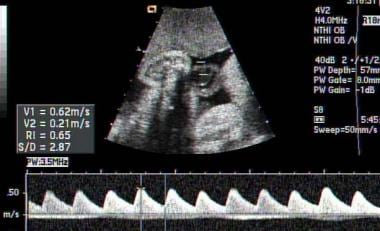:max_bytes(150000):strip_icc()/GettyImages-1863661231-56ecf6e63df78ce5f8361fcc.jpg)
Growth restriction is a condition in which the baby doesn’t eat enough food and can’t grow as big as it should. It’s most common in the first few months of pregnancy, but it can happen at any point during pregnancy. There are a few different types of growth restrictions, and they all have different causes. The most common type is called intrauterine growth restriction, or IUGR. This happens when the baby doesn’t get enough oxygen and nutrients to grow properly. Other types of growth restriction include postnatal growth restriction and neonatal growth restriction.
There isn’t anything that you can do to prevent growth restriction, but there are a few things that you can do to help your baby grow better. The first thing you can do is make sure that you’re eating a healthy diet. You need to give your baby enough energy to grow, so make sure that you’re including plenty of protein, carbs, and fruits and vegetables in your diet. You also need to make sure that you’re getting enough vitamins and minerals. You can also try to increase your baby’s intake of fluids. Fluids help keep the body well-hydrated, which helps the baby’s organs stay healthy and their muscles grow. If you’re pregnant and you find your belly is growing slowly, or not at all, there could be a reason for it.
What you need to know when preparing for childbirth? Known as growth restriction, this condition can occur at any stage of pregnancy but is more common during the first trimester. Here are some of the causes: Poor nutrition. When a woman doesn’t get the nutrients she needs to grow her baby properly, her body will start to break down parts of her own tissue in order to provide these nutrients to her fetus. This process can lead to growth restrictions. This condition is characterized by high blood pressure, protein in the urine, and a significant increase in the amount of protein in the blood. It’s the most common cause of early-onset growth restriction in pregnant women. Polycystic ovary syndrome (PCOS). PCOS is a disorder that affects a woman’s reproductive hormones and can lead to problems with ovulation (the release of an egg from an ovary). As a result, some women with PCOS experience growth restrictions during early pregnancy.
Prenatal Screening for Growth Restriction

If you are pregnant and your doctor suspects that you may have a growth restriction, they may order a prenatal screening for growth restriction. A growth restriction is when your baby isn’t growing as much as he or she should be for his or her age. There are many things that can cause a baby to not grow as fast as he or she should, but the most common reasons are problems with the baby’s health or genetics. If your doctor thinks that you might have a growth restriction, they will order a prenatal screening for growth restriction to see if there is anything wrong. Prenatal screening for growth restriction can involve a series of tests to measure how well your baby is growing and how well he or she is adapting to life outside the womb. The tests may include measuring the baby’s weight and height, doing blood tests to look for problems with the baby’s health, and doing scans of the baby’s body to see if there are any abnormalities.
